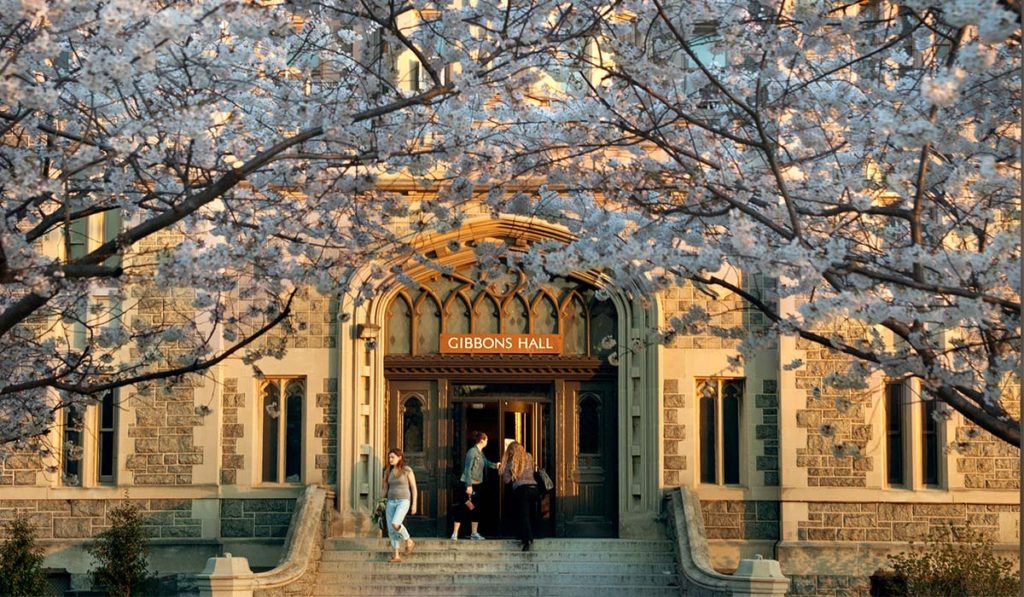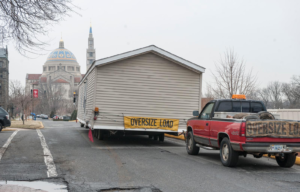New Budget Proposals Threaten Layoffs to Teaching Faculty

By Duane Paul Murphy
The University is considering budget cuts for the 2018-2019 academic year that would include laying off professors and staff members and increased class sizes, according to four professors who have been briefed on the proposals.
University Provost Andrew Abela has held meetings with professors last week to discuss the proposals. Though he didn’t go into specific details of the potential savings, the professors told the Tower under the condition that they not be named.
The presentation, hosted by Abela, started out with a layout of the current financial crisis which both the university and other institutions of higher education encounter, such as a decreasing number of students going to private colleges. According to the information of the professors, in order to stay competitive, cuts made across the board this past summer will be replaced with new methods of saving money in regards to the university’s overall budget.
Lynn Mayer, the University’s vice provost and dean of undergraduate studies, declined to immediately comment on the meetings and budget proposal. The Tower later received confirmation from the Office of the Provost that communication has begun between the provost and the deans on these matters.
“The Provost and deans have started a conversation with the faculty to find ways to further strengthen the academic success of the University and its students, while keeping costs–and therefore tuition–under control,” an email from the provost’s office said. “This conversation will unfold over several months, and no decisions will be made until the process is complete.”
According to several teaching faculty and staff members from the university who were briefed by Abela, the budget proposals lacked specific details such as how much money will be saved or actual examples from other universities nationwide. No information, such as official agenda documents or policy points from the provost, was distributed for the attending faculty and staff. However, certain proposals were made clear in the presentation, according to the professors. Professors who briefed The Tower said they kept notes on the provost’s presentation.
This new approach to address the financial constraints involves restructuring the teaching faculty and staff into a three-leveled tier system, according to the professors. The first tier of faculty and staff, which includes doctoral teaching faculty, will only have to teach two courses a semester or four courses in total throughout the academic school year. The second tier, which encompasses professional faculty, will only teach a three classes a semester. The third tier, which contains undergraduate faculty, will be given a higher amount of courses to teach: four classes per semester. This means that undergraduate students’ professors would be taking on the burden of more than the standard course load each semester, according to professors. Instructors obtaining Master’s degrees or doctoral degrees will teach less courses each semester, according to the professors.
One of the main reasons, according to the provost’s research, that this particular tier system restructuring is being proposed is due to a “perception of weak academic reputation” from last year’s incoming class, three professors told The Tower. Some teaching faculty and staff members present at the meeting questioned the policies being proposed with concerns about how increasing course loads will bring in money for the university and improve its academic reputation of the school. Furthermore, they have also expressed worries about balancing multiple duties, such as conducting research with colleagues or students, meeting with students one-on-one during office hours, and writing letters of recommendation, with an added course to their workload.
According to the presentation at the meeting, in order for this proposed tier restructuring to occur, multiple layoffs of tenured and nontenured teaching faculty and staff must happen, the professors said. The contracts of both clinical professors and adjunct instructors will not be renewed, and they will laid off by the university. Any courses taught by professors to be laid off would be absorbed by remaining professors. Another key issue mentioned was that increased course loads would hinder tenured teaching faculty’s performance in conducting research or acting as a department chair of a particular school. Removing tenured faculty from their positions will be a much more difficult, and consternating, process, as there are many rules barring it in the Faculty Handbook. As the office of the provost said, this matter will develop as the year goes on and more details will follow.
Reporters Katie Ward and Jimmy Cassidy contributed to this story.








